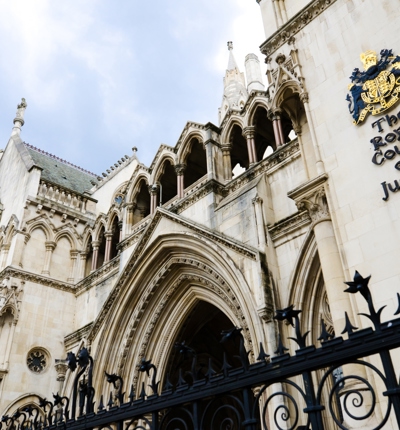
Thanet resident challenges review of stroke services in Kent
A 59-year-old resident from Thanet is challenging a series of decisions made by the Joint Committee of Clinical Commissioning Groups (JCCCG) for the Review of Urgent Stroke Services in Kent and Medway to reduce stroke services in Kent.
Posted on 04 December 2019
The legal challenge will be heard in the High Court in London from Tuesday 3rd to Thursday 5th December 2019.
The JCCCG have reduced the provision of stroke services down to three hyper acute stroke units (HASU) at Darent Valley Hospital, Maidstone Hospital and William Harvey Hospital. They are also decommissioning acute stroke services at the Queen Elizabeth the Queen Mother Hospital, Medway Hospital, Tunbridge Wells Hospital and the Kent and Canterbury Hospital.
The claimant, who has a number of health conditions which put them at heightened risk of a stroke, is challenging the decision by the JCCCG regarding the location and number of hyper acute stroke units, as he argues that this decision disproportionately affects those in Thanet, in the east of the County, which is one of the most deprived areas of the county.
It is acknowledged that deprived areas have higher instances of strokes. This is demonstrated particularly in Thanet, which has the highest hospital admissions rate for strokes in Kent: some 165 people per 100,000 resident population.
The legal case will argue that the decision to have three acute stroke units in the locations chosen will mean that those in the most deprived areas which have longer travel times to the stroke units, and therefore longer delays in treatment, than those in other areas of Kent. In Thanet 17% of people will not be able to access a HASU in 60 minutes, whereas 98.3% in the general population in Kent and Medway will be able to access a HASU in 60 minutes and the vast majority in 45 minutes.
The claimant argues that the decision by the JCCCG to reconfigure stroke services in Kent was unlawful on a number of grounds including a failure to consider the health inequalities caused by the decision, failing to properly inquire about workforce recruitment at the Queen Elizabeth the Queen Mother Hospital before discarding it as an option for consideration as a HASU, and carrying out an unfair consultation.
Rowan Smith, solicitor at Leigh Day, said:
“As a result of these plans, deprived areas of Kent, where people are more likely to be at risk of stroke and experience more severe strokes, will have worse access to specialist doctors. We are arguing on our client’s behalf that the JCCCG failed to have due regard to the need to reducing health inequalities, in respect of both access and outcomes, because they failed to take the impact on deprived communities into account as a factor in deciding where and how many HASUs to locate.”
Anna Dews, solicitor at Leigh Day, added:
“We will also argue on behalf of our client that the local community was misled during the consultation, because the JCCCG ignored consulting on the option of four or more HASUs, even though that option could have reduced health inequalities across Kent. Our client is from one of those areas which missed out, and he is personally at higher risk of stroke due to medical conditions.”



